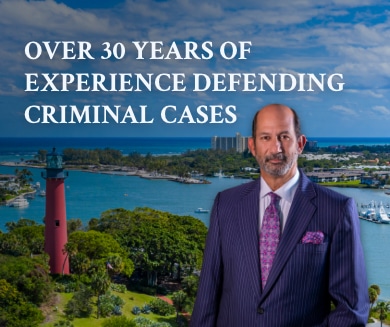Legally Reviewed By:
Brian P. Gabriel, Esquire
Megan’s Law
 In 1990, Washington State implemented the Community Protection Act, which included the nation’s first law authorizing law enforcement to notify their communities upon the release of dangerous sex offenders. In 1996, the murder of Megan Kanka prompted federal legislation that required all 50 states to make private information about sex offenders available to the general public. Megan’s Law, known as the Florida Sexual Predators Act in Florida, allows the public to be wary of potentially dangerous predators in their area.
In 1990, Washington State implemented the Community Protection Act, which included the nation’s first law authorizing law enforcement to notify their communities upon the release of dangerous sex offenders. In 1996, the murder of Megan Kanka prompted federal legislation that required all 50 states to make private information about sex offenders available to the general public. Megan’s Law, known as the Florida Sexual Predators Act in Florida, allows the public to be wary of potentially dangerous predators in their area.
Origin of Megan’s Law
In 1994, a seven-year-old girl by the name of Megan Nicole Kanka was lured into the home of her would-be abuser and murderer when her neighbor invited her across the street to see his puppy. The man had two previous convictions against him for sexually assaulting young girls and had just been released from prison upon serving the maximum sentence. Once in the home, he allegedly raped, beat, and strangled Megan to death. He then disposed of her body in a nearby park. The next day, he led law enforcement to the scene of the crime.
The girl’s grieving parents noted that they would never have let their child wander the neighborhood if they had known a convicted sexual offender lived across the street. Two years later, Congress passed the federal version of “Megan’s Law,” which set requirements for each state to update the public with pertinent information about sex offenders in their communities.
Key Requirements
Megan’s Law is an amendment to the 1994 Jacob Wetterling Act, which obligates states to register individuals convicted of sex crimes against children. The Jacob Wetterling Act was enacted as part of the Federal Violent Crime Control and Law Enforcement Act of 1994, which requires states to form registries of offenders convicted of sexually violent offenses or offenses against children. As part of the Act, states must confirm where sex offenders reside annually for a minimum of ten years. Offenders deemed sexually violent predators must update their addresses four times a year for life.
To fortify the Jacob Wetterling Act, Megan’s Law made it a requirement for law enforcement authorities to make private information about known sex offenders public. Individual states’ requirements for sex offender registration and community notification are generally known as the state’s “Megan’s Laws.”
What is Disclosed Through Megan’s Law?
Members of a community can access the photographs, names, and addresses of registered sex offenders through the internet and other forms of community notification. Those who are convicted of sexual offenses must register regularly based on the details of their crime to ensure information on the registry is up-to-date.
Although Megan’s Law intends to protect children from violent offenders, the sex offender registry does a disservice to the community by lumping in low-level offenders who are unlikely to re-offend, or whose crimes hurt no one. To preserve your reputation and avoid a lifetime of registration for your alleged sexual offense, reach out to The Law Office of Gabriel & Gabriel by calling 561-622-5575 or contacting us online for a free consultation. With over 30 years of experience defending the rights of the criminally accused, attorney Brian Gabriel provides informed criminal defense in West Palm Beach.










